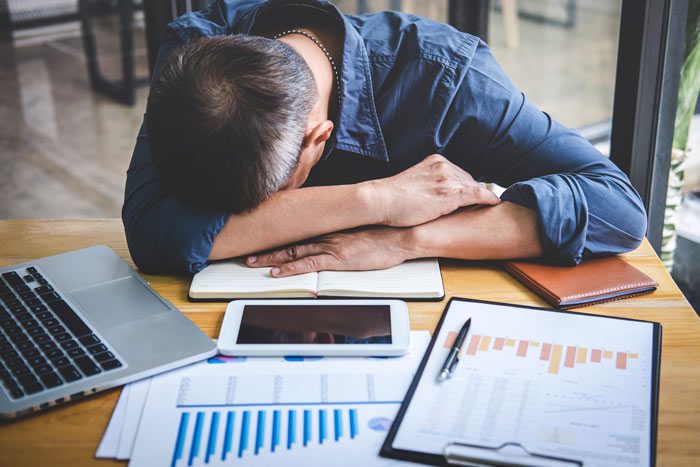Insomnia & Alcohol
 Millions of adults across the United States find it difficult to sleep at night—and many mistakenly believe that drinking alcohol before bed will help them get the rest their body needs. Unfortunately, while alcohol is a sedative that is linked with feelings of general relaxation, drinking in the evening is most likely to lead to increased sleep difficulties.
Millions of adults across the United States find it difficult to sleep at night—and many mistakenly believe that drinking alcohol before bed will help them get the rest their body needs. Unfortunately, while alcohol is a sedative that is linked with feelings of general relaxation, drinking in the evening is most likely to lead to increased sleep difficulties.
Understanding How Alcohol Consumption Affects Sleep
Every individual reacts differently to alcohol depending on factors such as age, gender, body weight, and whether they are taking any prescription medications. However, alcohol can potentially affect a person’s sleep in the following ways:
- Delayed sleep onset. People who drink alcohol before going to bed need more time to fall asleep than those who are sober.
- Interrupted sleep. Even if you’re not waking up because you need to use the restroom, drinking in the evening hours is likely to cause more frequent sleep interruptions. This effect is most pronounced in older adults since the body experiences a natural increase in nighttime wakefulness as we age.
- Poor sleep quality. Drinking alcohol before you go to bed leads to a shorter sleep cycle where you’re getting less of the REM sleep your body needs to function at an optimal level. Interruptions in REM sleep can lead to decreased immune system effectiveness, increased perception of pain, difficulty regulating mood, trouble concentrating, and long-term memory impairment,
- Increased insomnia. People who use alcohol to self-medicate insomnia tend to develop a tolerance that requires higher levels of consumption on a nightly basis. However, studies have shown that continued consumption of alcohol leads to a decrease in its sleep-inducing effects and an increase in its ability to cause sleep disturbances.
- Increased risk of sleep apnea. Sleep apnea is a type of sleep disorder characterized by abnormal breathing during sleep due to physical blockages in the back of the throat or the brain’s inability to signal the muscles that control breathing. Drinking alcohol in the evening can cause episodes of sleep apnea in people who have not previously had the condition.
- Increased snoring. Even if you don’t normally snore, alcohol can cause heavy snoring by relaxing the throat and mouth muscles. This disrupts your own sleep as well as the sleep of others in your home.
- Changes in circadian rhythms. Drinking alcohol in the evening lowers melatonin levels. Melatonin is a hormone that is needed to prepare the body for sleep in the evening as part of its 24-hour circadian rhythm.
- Increase in mental health symptoms. Drinking is linked to an increase in symptoms of anxiety or depression—both of which increase a person’s likelihood of experiencing poor quality sleep.
It should be noted that these negative effects don’t even require a person to drink heavily. According to the Sleep Foundation, even low amounts of alcohol (defined as less than two servings per day for men or one serving per day for women) decrease sleep quality by 9.3%. Moderate drinking (defined as two servings per day for men or one serving per day for women) decreases sleep quality by 24%. Heavy drinking (defined as any alcohol consumption exceeding the moderate level) results in an astonishing 39.2% decrease in sleep quality.
Healthier Ways to Get the Rest Your Body Needs
At Waypoint Recovery Center, many of our clients with alcohol use disorders report increased sleep disturbances and insomnia during the early stages of their recovery. This does not mean that alcohol is necessary for a good night’s sleep. It is simply an indication that their bodies are recalibrating to adjust to life without addictive substances. Insomnia and other sleep-related withdrawal systems will gradually decrease in intensity as a person becomes more established in their sobriety.
Here are some sleep hygiene tips to help you get the rest your body needs:
- Set a consistent sleep schedule. Try to go to bed and wake up at roughly the same time each day—even on the weekends.
- Make a comfortable sleeping space. Keep your bedroom cool and dark. Use a fan or white noise machine if you live in a loud neighborhood. If your budget permits, consider upgrading your mattress and bedding.
- Create a calming nighttime routine. Taking a warm bath, running through a few calming yoga poses, reading a book, or writing in your journal can help you wind down in the evening.
- Avoid large meals before bedtime. Being too full can make it difficult to fall asleep, especially if you are prone to heartburn or acid reflux.
- Put down the electronics. TVs, laptops, and cell phones emit blue light that can interfere with melatonin production and make it harder to fall asleep. If you’re finding it difficult to sleep, you should avoid using electronics in the late evening hours.
- Keep naps to a minimum. Naps can’t compensate for insufficient rest at night. If you absolutely must nap, limit yourself to no more than 30 minutes.
If you’re struggling with sleep disturbances and an alcohol use disorder, we’re here to help you develop a wellness-focused lifestyle that heals the mind, body, and spirit. Contact us today to learn more about our South Carolina residential inpatient, intensive outpatient, continuing care, and alumni programs.





